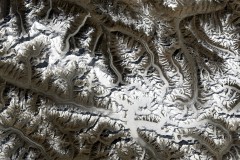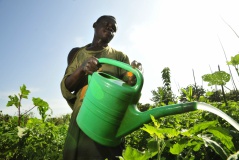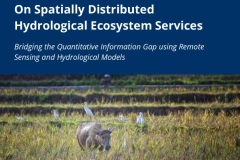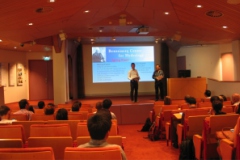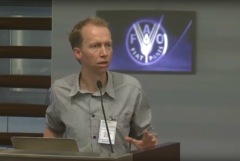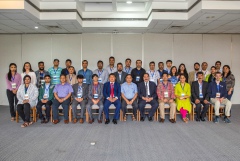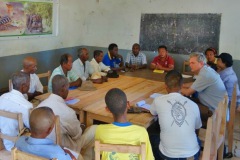Year: 2017
28 December 2017
Higher crop water requirements due to climate change in Kazakhstan
The government of Kazakhstan with financial support of the Asian Development Bank (ADB) is planning to upgrade and rehabilitate its irrigation sector. A detailed Climate Risk and Vulnerability Assessment (CRVA) has been undertaken by a consortium led by FutureWater in 2017. The team collected all available data on the project and had undertaken a rigorous...
18 September 2017
Dutch climate experts join forces
Fourteen Dutch knowledge organisations have joined forces to provide government bodies and companies in the Netherlands and abroad with better policy advice on adapting to the enormous challenges posed by climate change. Today, they signed agreements to establish the Netherlands Consortium on Climate Change Adaptation (CCCA). The consortium will integrate knowledge and expertise from various...
14 September 2017
At least one-third of Asian glaciers will disappear
Even if the planet only warms up by 1.5 degrees Celsius – which is what the signatories to the Paris climate agreement are aiming for – one-third of all Asian glaciers will have melted by 2100, according to a study carried out by Utrecht University and FutureWater, which is published in Nature on 14 September....
1 September 2017
FutureWater releases new study on monitoring Water Productivity
Water Productivity, expressed as the amount of crop yield over the amount of water consumed (kg/m3), has been accepted as the standard to monitor sustainable water management. FutureWater has evaluated various methods, including satellites and Flying Sensors (drones) to monitor Water Productivity for a demonstration project ThirdEye in southern Mozambique. Monitoring Water Productivity is set...
7 July 2017
White paper published: On Spatially Distributed Hydrological Ecosystem Services
FutureWater published a white paper to demonstrate that, by leveraging technologies and remote sensing data, Hydrological EcoSystem Services (HESS) at the river basin scale can be effectively described, quantified and compared in space and time. This white paper demonstrates state-of-the-art methods for assessing different HESS and their tradeoffs under different development scenarios. It explores opportunities for...
4 July 2017
Boussinesq Prize 2017 awarded to Walter Immerzeel
Text adopted from: Boussinesqcenter.nl On Friday June 2nd Walter Immerzeel (Utrecht University) received the Boussinesq Prize 2017 awarded by prof. Bob Su. Walter Immerzeel has quickly become one of the most influential and highly cited young scientists in mountain hydrology, in particular on the effect of climate change on snow and glaciers in High Mountain Asia...
1 July 2017
FutureWater at FAO seminar on drought and agriculture: Close the drought management cycle in Vietnam
FutureWater has presented work in Vietnam on the development of a drought information system, during a high-level event at UN Food and Agriculture Organization (FAO) headquarters, gathering specialists from all over the world. The international seminar on drought organized by Iran, the Netherlands, and FAO in Rome aimed to catalyse a renewed international push to tackle...
23 June 2017
MSc thesis research on efficient use of water in agriculture: visiting Xai-Xai, Mozambique
Increasing world population, rising food demand, limited water resources. Currently 70% of the fresh water uptakes are already used for irrigation. The need for efficient water use in agriculture is undisputed! The United Nations’ Sustainable Development Goal 6.4 is set at the improvement of efficient use in order to reduce water scarcity and maintain food...
7 June 2017
Regional Training on Hydrological Modelling in the Hindu Kush Himalaya, Nepal
The Hindu Kush-Himalayan region is highly dynamic as there are many socio-economic and environmental drivers at play, including climate change. The impacts of these changes challenge the resilience of natural and human capacities and environments in the region. Recent studies have shown that the Himalayan region and the downstream areas that depend on its water...
26 May 2017
Successful scoping mission for new World Bank project on enhanced landscape resilience in Madagascar
Deforestation, population growth, and climate change are only some of the challenges to sustainable landscape management in Madagascar. Severe impacts of land degradation on crop production, water availability and biodiversity are already observed and expected to exacerbate in the future. To address these challenges, the World Bank is supporting the PADAP project, which is based...


